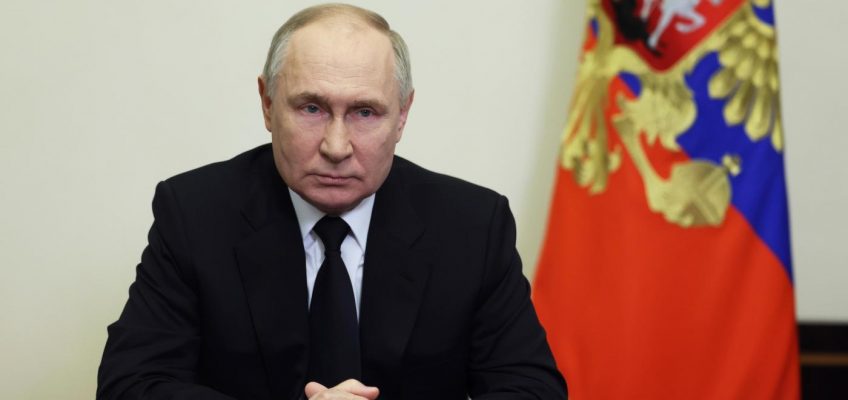After months of delay, U.S. aid is again flowing to Ukraine. Yet the war’s trajectory remains uncertain. Russia is determined to win a protracted conflict, while Washington’s appetite for further aid remains in question. As the United States heads into a presidential election that could be key in determining the war’s outcome, we should take a moment to remind ourselves that a Russian victory in Ukraine would spell disaster for the West.
Vladimir Putin has been candid about his desire to dismantle NATO, undermine democracy globally, re-establish Russia as a global power and achieve a new multipolar world order. The Kremlin already sees itself as engaged in a war of sorts against the United States and its NATO allies. In Putin’s eyes, the conflict in Ukraine is critical to that broader struggle.
Make no mistake. If allowed to prevail in Ukraine, Putin will not stop there. The Russian leader will feel emboldened, believing he’s taken the best NATO had to throw at him and still triumphed. He will probably still think twice before starting a direct military conflict with a NATO member. However, the risk of such a possibility will grow, especially once Russia has reconstituted its military. Many NATO members on the alliance’s eastern flank, particularly the Baltic states, are sounding the alarm.
A direct war with NATO is not the only way the Kremlin could destabilize Europe. Last week, NATO warned that Russia is waging an “intensifying campaign” of “sabotage, acts of violence, cyber and electronic interference, disinformation campaigns, and other hybrid operations” against its members. European intelligence agencies similarly accuse Moscow of conducting or plotting violent acts of sabotage across Europe as part of a broader strategy to confront the West. Russia is already attempting to influence the European Parliament elections in June. It will undoubtedly seek to do the same in November’s U.S. elections.
Meanwhile, Russia continues to stoke tensions within Bosnia and Herzegovina and between Serbia and Kosovo, further jeopardizing an already fragile peace in the Western Balkans. Russia also seeks to subvert the pro-Western government of Moldova, where Russian forces still occupy the pro-Russian separatist enclave of Transnistria. As Moldova prepares to hold a presidential election this year, Moscow will likely use information operations, cyberattacks and proxies to destabilize the country. And there are fears that if Ukraine falls, “Moldova would be next,” as the country’s foreign minister said recently.
The implications of a Russian victory in Ukraine would extend well beyond Europe. The war’s outcome will “to a great degree determine the outlines of the future world order,” noted a classified addendum to Russia’s 2023 Foreign Policy Concept.
A Russian victory would embolden authoritarian regimes that seek to overthrow the current international order. China, in particular, may feel more inclined to use military force against Taiwan. This potential conflict would wreak havoc on the global economy and could precipitate a hot war between the United States and Beijing.
So, what can the West do to stop this? The first step is to understand that aid for Ukraine is not charity but a smart investment in our own security. We must then channel that understanding into a greater sense of urgency to provide Ukraine with the weapons and training to hold its lines and eventually retake the advantage. Western governments should also stop allowing Russian nuclear extortion to deter them from providing maximum support to Ukraine.
In Ukraine, the Kremlin aims not just to subjugate Kyiv but to rewrite the global order at the expense of Western democracies. The West has the power to stop Putin. The only question is whether we’re willing to do so.
Ivana Stradner is a research fellow with the Foundation for Defense of Democracies, where she studies Russia’s security strategies and military doctrines. She wrote this for InsideSources.com.
Related Articles
F.D. Flam: If pigs get bird flu, we could be in for a real nightmare
Thomas Friedman: Why the campus protests are so troubling
Stephen Mihm: Comparing Gaza protests to the ’60s is wrong — and dangerous
Marc Champion: Don’t let Gaza help Iran cloak its own repression
Trudy Rubin: 2024 isn’t 1968: University protesters need more clarity about their goals


Leave a Reply